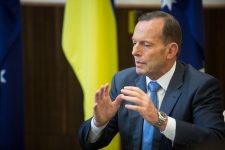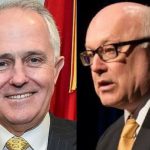Terrorism Suspects to Have Their Citizenship Revoked

Politicians and media outlets regularly tell us that terrorism is the greatest threat to our Australian values and lifestyle – despite the fact that terrorist attacks occur relatively infrequently compared with other criminal offences.
Nevertheless, suggestions that we are at risk of an imminent terror attack have roused feelings of fear, anger and resentment amongst Australians, with many calling for stricter laws to strengthen national security and invest law enforcement agencies with more and more powers to prevent terrorist attacks.
The latest legislative proposal is to strip local terrorism suspects of their Australian citizenship – with a Bill to amend the Australian Citizenship Act 2007 introduced into Parliament today.
Patriotically named the ‘Allegiance to Australia Bill’, the announcement has won support from many politicians and media personalities.
However, it has been a source of disquiet from other members of parliament, including some Cabinet ministers who believe that courts should play a greater role in determining when an individual’s citizenship should be revoked.
The Debate So Far
The suggestion that terrorism suspects should be stripped of their citizenship is not a novel one by any means. Other countries, including the UK, already have such mechanisms in place.
Back in February, we penned a blog about the Federal government’s proposal to strip those suspected of terrorism of their Australian citizenship where they are dual citizens – in other words, where they hold citizenship in another country as well as Australia.
There are reportedly 23 Australians in prison for terrorism-related offences, with around half of them dual nationals.
It was proposed that the Immigration Minister, Peter Dutton, would be granted the power to strip these people of their citizenship.
We discussed the challenges of such a proposal, and the potential for these people to be rendered ‘stateless’ contrary to our obligations under international law.
At that point, little was known about how a person could be stripped of their citizenship, and what role (if any) the courts would play in determining whether the laws would potentially extend to “sole citizens” – that is, those who do not hold dual citizenship.
However, the government has gone to some lengths in recent weeks to clarify the ambit of the proposed legislation.
What’s The Position Now?
With the proposals set to become law in a matter of weeks, the time is certainly ripe for the government to clarify the scope of the legislation.
And, following a ‘robust’ Cabinet discussion, it seems that sole citizens will not face the prospect of having their citizenship revoked – at least for now. This is despite reports that Prime Minister Tony Abbott and Immigration Minister Peter Dutton had supported the idea.
Mr Dutton had previously made reference to British laws which allow a “naturalised” sole citizen to have their citizenship revoked where they are able to apply for citizenship elsewhere – including where one of their parents is a citizen of another country.
But our Prime Minister subsequently denied that this would form part of Australia’s new laws, stating that while the idea had been ‘canvassed’ in a discussion paper, ‘we have certainly formed no intention to go down that path.’
Philip Ruddock, who has recently been appointed as Australia’s ‘Special Envoy on Citizenship,’ has backed this position, stating that ‘we have an expectation that [naturalised citizens] will observe our laws.’
The government also stated that it would be compelled to ‘take back’ Aussie citizens who had been stripped of their dual citizenship in another country, so as not to render them stateless.
But the government has been quick to remind us that these people would face sanctions under Australian law upon their return.
The Amendments
The Bill that is currently before Parliament proposes to give the Minister of Immigration the power to renounce a dual national’s citizenship where he believes that the person ‘acts inconsistently with their allegiance to Australia.’
The Bill lists 8 categories of conduct which would constitute ‘acting inconsistently with an allegiance’, which are:
- Engaging in international terrorist activities using explosive or lethal devices;
- Engaging in a terrorist act;
- Providing or receiving training connected with preparation for, engagement in, or assistance in a terrorist act;
- Directing the activities of a terrorist organisation;
- Recruiting for a terrorist organisation;
- Financing terrorism;
- Financing a terrorist;
- Engaging in foreign incursions and recruitment
A person who is believed to have acted in any of these ways will immediately lose their citizenship, without any notice.
These new laws will apply to dual nationals, even if they were born in Australia. And notably, children of those who have their citizenship renounced may have their own citizenship renounced as well under the new laws.
Natural Justice Removed
But perhaps most concerning is a provision which states that ‘the rules of natural justice do not apply to the powers of the Minister under this section.’
Natural justice, or procedural fairness, is a principle which embodies fairness, transparency and equality before the law, as well as the right to be heard in court.
A statement excluding natural justice provisions effectively means that a person suspected of ‘acting inconsistently with their allegiance to Australia’
will not be afforded the right to have their case determined in court before their citizenship is revoked.
In other words, they will automatically lose their citizenship even before they have a chance to tell their side of the story – and the law says that they will be unable to resume their citizenship once it is ceased.
The legislation does not even require a criminal charge to be brought against the so-called suspect, let alone a conviction to be obtained. This gives the Minister complete discretion to decide who to target and remove from the country.
The legislation also states that a person will cease to be an Australian citizen if they serve in the armed forces of another country which is at war with Australia, or if they fight for a terrorist organisation.
Significantly, there is no explicit right to review in the Bill, with Mr Dutton claiming that automatic rights of review to the Federal and High Courts do not need to be mentioned in the legislation.
Problems With A Lack of Judicial Review
In the weeks leading up to the Bill, the government has been divided over the role of courts in revoking a person’s citizenship.
Mr Abbott made it clear that he wanted the courts to have little to do with the process, leaving the Immigration Minister to have the final say in these situations.
And leaked government documents encouraged other ministers to adopt this approach, stating that ‘a law requiring a terrorist conviction would be toothless.’
Mr Abbott had also cautioned of the ‘perils’ of suspects facing trial prior to being stripped of their citizenship, stating that Australians ‘do not want terrorists loose on our streets.’
But the Prime Minister’s remarks have drawn criticism from several members of parliament, with Opposition Attorney-General Mark Dreyfus suggesting that Mr Abbott is ‘trashing’ the rule of law by denying terror suspects the right to a fair trial.
Bret Walker SC, who formerly held the role of independent national security legislation monitor, also expressed his concerns about the lack of judicial oversight.
Mr Walker was incidentally the person who initially put forth the proposal to strip dual citizens of their Australian citizenship – but has since made it clear that his proposal was subject to the condition that a person can only have their citizenship revoked where they have been convicted of a terrorism-related offence.
He has described the situation where a person can be stripped of their citizenship without a trial as ‘constitutionally unthinkable,’ as it would breach the doctrine of the separation of powers.
But the Prime Minister remains convinced that the laws will withstand any constitutional challenge.
It’s unknown whether the Bill in its current form will make its way into law – but it may be years before its validity under constitutional law is known.






